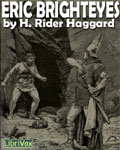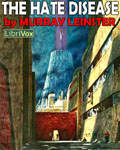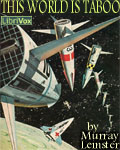
 The Big Time
The Big Time
By Fritz Leiber; Read by Suzanne Toren
4 CDs – Approx. 5 Hours [UNABRIDGED]
Publisher: Brilliance Audio
Published: August 2010
ISBN: 9781441875129
Sample: |MP3|
Themes: / Science Fiction / Mystery / Locked Room Mystery / Time Travel / Sex / Aliens / War / History /
Have you ever worried about your memory because it doesn’t seem to recall exactly the same past from one day to the next? Have you ever thought you might be changing because of forces beyond your control? Have you ever thought that the whole universe might be a crazy, mixed-up dream? If you have, then you’ve had hints of the Change War. It’s been going on for a billion years and it’ll last another billion or so. Up and down the timeline, the two sides – “Spiders” and “Snakes” – battle endlessly to change the future and the past. Our lives, our memories, are their battleground. And in the midst of the war is the Place, outside space and time, where Greta Forzane and the other Entertainers provide solace and R and R for tired time warriors. The Big Time was first published in two two issues of Galaxy Science Fiction magazine, March and April 1958.
When I finish reading an old Science Fiction novel like this one I pick-up my copy of The Dictionary Of Science Fiction Places (by Brian Stableford) and see if there’s an entry for it. There is one for The Big Time. It’s listed under “Place, The” on pages 238 and 239. Here are a couple of descriptive passages therefrom:
“[The Place is a] safe haven established outside the cosmos while infinity and eternity were undergoing the continual upheavals of the Change War, in order to serve as a Recuperation Station for soldiers fighting on the side of the Spiders against the Snakes. Its female staff were officially categorized as Entertainers and quite rightly thought of their work as nursing rather than whoredom.”
and
“The Place was midway in size and atmosphere between a fair-sized nightclub and a cramped Zeppelin hangar.”
As other reviewers have pointed out this is essentially a stage play, and as such, the stage for The Big Time is “The Place.” Now given that it won a Hugo Award, for the Best Novel of 1958, I’m kind of surprised how lightweight and compact The Big Time is. The entirety of the action takes place in just the one location and over a very short period of time. Adding to the oddness, it’s narrated in first person, by a resident/worker in what is essentially an quasi-bar-brothel (or bawdy house) for military personnel. That’s actually a very good thing in terms of storytelling as The Big Time is actually a locked room mystery tale, a mutiny and a variation on Edgar Allan Poe’s The Purloined Letter. The whole book is chock-full of allusions, historical details and notable quotations (one for each chapter in fact). The plot doesn’t really get rolling until about half-way through, at which point you’ve learned nearly enough to play along with the mystery aspect. I liked how it was resolved, and found that the process had me both suitably and appropriately buffaloed with it’s many Agatha Christie-style red-herrings.
There’s a nice description of this novel’s uniqueness on the Wikipedia entry: “The Big Time is a vast, cosmic back story, hidden behind a claustrophobic front story with only a few characters.” That’s it precisely. Now to the question I turned over and over in my mind after hearing it. “Is The Big Time a classic for the ages?” Upon long consideration I’m thinking that it is not. It is a good story, but it’s nowhere near that vaunted class of SF greatness. The idea of time travelers fighting a war across time and space isn’t a particularly original or interesting. And it isn’t an idea that is thoroughly exhausted in this story. But, for what this story is, and how it’s done, The Big Time is definitely worth reading if you’re in a mood for a locked room tale.
I’m sad to report a couple of minor blemishes mar this otherwise excellently produced audiobook version. First there’s the music. Each disc in the CD set ends and begins with music that absolutely does not fit the novel’s atmosphere. This problem may be entirely avoided by getting the original Audible Frontiers version, or perhaps mostly (or completely) eliminated with the MP3-CD edition.
Second, more serious, and entirely unavoidable, there is a lyrical song in the text, which I will reproduce to illustrate the problem. This comes at the end of Chapter 3:
Standing in the Doorway just outside of space,
Winds of Change blow ’round you but don’t touch your face;
You smile as you whisper tenderly,
“Please cross to me, Recuperee;
The operation’s over, come in and close the Door.”
Given the number of references I got, this one must be Fritz Leiber’s nod to the immortal Lili Marleen. But Suzanne Toren, who is otherwise absolutely fantastic, doesn’t use Lilli Marlene as the melody. And that is a small, but very real shame.
By the way, here are three of several cool Virgil Finlay illustrations from the original Galaxy publication:
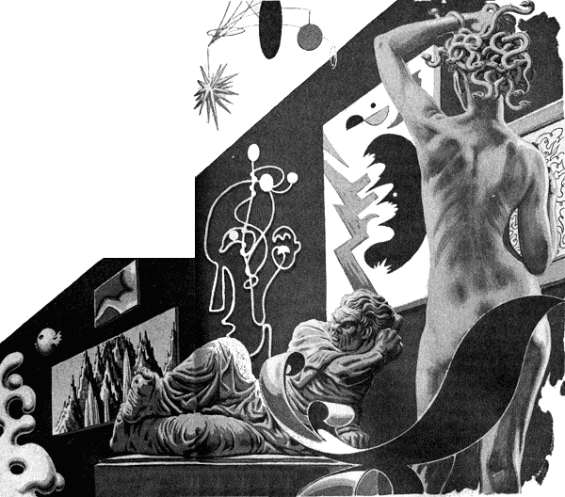
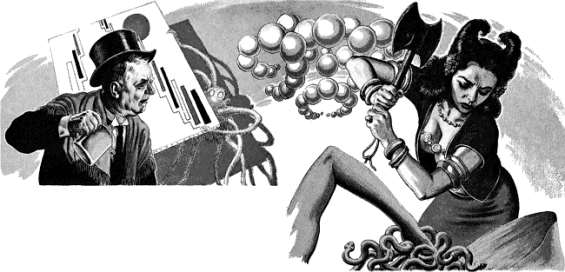
Posted by Jesse Willis
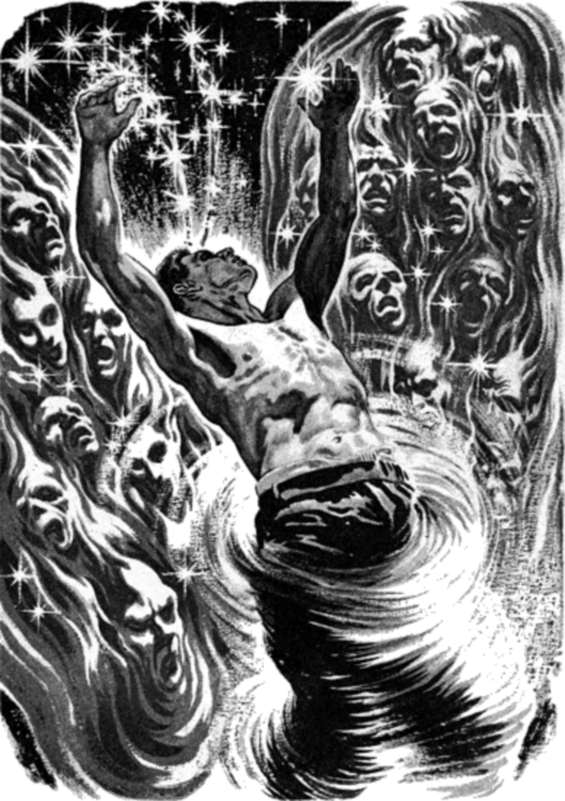




 Back in April my friend
Back in April my friend 